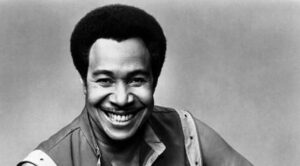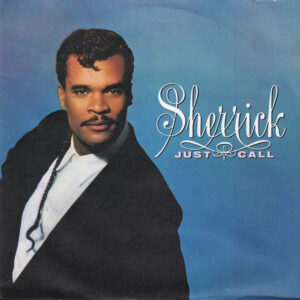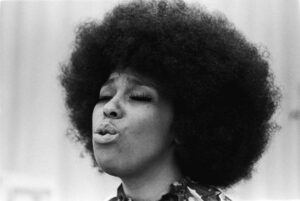Charlie Wilson has had two Hall of Fame careers. First as part of the funky family trio, The Gap Band, and later with an incredible second act as a solo artist.
Formed in Tulsa, Oklahoma in the early 70s by brothers Charlie, Ronnie and Robert Wilson, the Gap Band largely mimicked musical pioneers George Clinton, Stevie Wonder and Earth Wind & Fire before developing their own distinctive sound in the early 80s that propelled them to the forefront of soul and funk music. Named as an acronym for three streets in Tulsa, the Gap Band spent most of the 70s as backing musicians or as the warm-up act for visiting artists ranging from the Rolling Stones to Willie Nelson.
The group recorded a couple minor albums in the mid-70s but received their first taste of national success only after signing with Mercury Records in 1979. Working with producer Lonnie Simmons, the Gaps hit the top of the Soul charts with the Clinton-inspired humorous cut “I Don’t Believe You Want to Get Up and Dance” (more commonly known for the repeated rap “Oops Upside the Head”). However, the group didn’t distinguish itself from the remainder of the burgeoning pack of disco-funk groups until 1980’s III, an excellent disc on which the Gap Band broke out of the shadow of its influences to establish its own brand of infectiously funky, electric sound characterized by the album’s big hit, “Burn Rubber.” The group showed its songwriting development with now classic gritty ballad “Yearning For Your Love,” and the surprising piano ballad, “Nothing Comes to Sleepers.”
The Gap Band’s next album, while not as uniformly strong as III, was its biggest. IV became one of 1982’s biggest soul albums and popped out three top 10 crossover smashes, “Outstanding,” “Early In the Morning” and the group’s most notable hit, “You Dropped A Bomb On Me” – a song that has since been sampled by other artists countless times. About that time the Gap Band was also becoming a great touring funk band, and the group spent the remainder of the 80s topping bills around the world while also maintaining its Soul radio popularity with hits such as “Big Fun,” “Party Train,” “Beep A Freak” and a #1 remake of the Friends of Distinction’s “Going In Circles.” Charlie Wilson also established himself as one of the most distinctive lead singers in soul music, as his slightly raspy, strong baritone powered also not only Gap hits, but also songs of other artists (most notably Zapp’s “Computer Love”).
By 1990, a general decline in the quality of the group’s work, a changing in musical tastes and Charlie Wilson’s slippage into alcohol and drug addiction sidelined the Gap Band. However, Wilson overcame his addictions and the group proclaimed its return with a national tour and the aptly titled 1996 album Live and Well. The Wilsons continued to perform (successfully) and record (not so successfully) over the remainder of the decade.
In 2000, Charlie Wilson recorded a well-received second solo album (he had released an unsuccessful solo disc in the early 90s) that included two great ballads, the UAC hit “Without You” and the duet with Marc Nelson “For Your Love.” But it was his signing with Jive Records and his 2005 release Charlie, Last Name Wilson, made with an all-star cast of modern producers, including The Underdogs and R. Kelly, that began an incredibly successful solo career. that continues to this day.
Over the next decade and a half, Wilson became an adult soul superstar, issuing five charttopping albums, and a string of singles that, one by one, went to #1 on the UAC charts. He also became a concert favorite, selling out arenas around the world.
As the music business changed in the late 2010s, as albums waned and individual songs on streaming platforms dominated, so did Wilson’s game. He teamed with talents ranging from Bruno Mars (“Forever Valentine”) to Smokey Robinson (“All of My Love”), and engaged his fans with hit single after hit single, in the process establishing himself as the most successful Urban Adult Contemporary male vocalist of all time. He also collaborated with several hip-hop artists on their projects, making his name a familiar one to his third generation of fans.
By Chris Rizik










